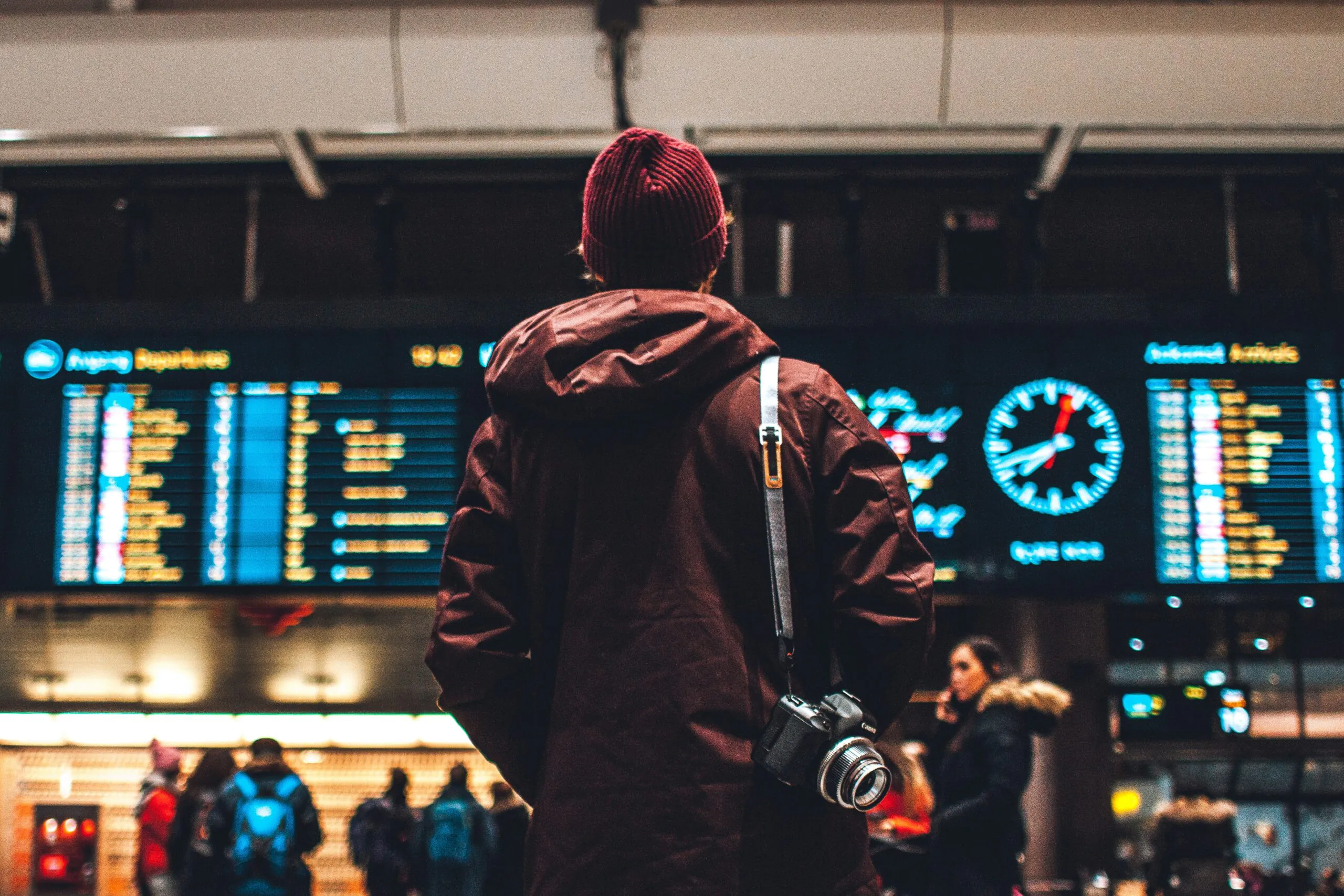How to Budget for a Digital Nomad Lifestyle
Living the life of a digital nomad may seem like a dream—traveling the world, working from exotic locations, and experiencing diverse cultures. However, while the lifestyle offers freedom and flexibility, it also requires careful financial planning. Understanding how to budget for a digital nomad lifestyle can make the difference between a smooth, sustainable journey and constant financial stress. Without a solid budget, the freedom you seek can quickly turn into uncertainty and unexpected costs.
Budgeting as a digital nomad is different from managing finances in a stationary lifestyle. You’ll need to account for fluctuating expenses such as accommodations, flights, food, and insurance, all while ensuring a steady cash flow to cover both your personal and professional needs. Thankfully, by following some smart budgeting tips, you can enjoy your nomadic life without financial strain.
In this guide, we’ll walk you through practical steps to create and maintain a budget that works no matter where your journey takes you. With effective budgeting strategies, you’ll be better prepared to navigate unexpected expenses, save for the future, and make the most of your digital nomad lifestyle.
Understand Your Monthly Expenses as a Digital Nomad
The cornerstone of mastering your digital nomad budget is developing a comprehensive grasp of your monthly expenditures. While embracing a location-independent lifestyle often allows for significant cost savings compared to traditional living arrangements, financial realities can fluctuate dramatically across different destinations. From bustling Asian tech hubs to serene European coastal towns, each location presents a unique financial ecosystem that directly impacts your bottom line. Consider these essential factors when mapping your nomadic financial landscape:
1. Accommodations
Your biggest expense is likely to be your accommodation, which can range from affordable hostels or shared apartments to high-end Airbnb rentals or long-term stays in co-living spaces. Researching accommodation costs in your destination is crucial. You can often save money by booking long-term stays, or by using platforms like Booking.com and Airbnb to compare prices.
For budget-conscious nomads, consider house-sitting or home exchanges, which allow you to stay in someone else’s home for free in exchange for taking care of the property. Websites like TrustedHousesitters offer opportunities like this.
2. Transportation
Flights, trains, buses, and local transportation can add up quickly. Planning ahead and utilizing flight deal websites like Skyscanner can help you find affordable options. Additionally, opting for slower, overland travel or being flexible with your travel dates can significantly reduce transportation costs. Once you’re at your destination, use public transportation or rent bicycles to save money.
3. Food and Dining
Eating out can become expensive, especially if you’re constantly visiting tourist areas. One of the best ways to budget for food expenses is by balancing eating out with cooking your own meals. Many co-living spaces or long-term rentals offer kitchen access, allowing you to shop at local markets and prepare your meals. Not only is this cost-effective, but it also allows you to immerse yourself in local culture through food.
Essential Tools for Budgeting on the Go
Maintaining a budget while on the road can be a challenge without the right tools. Fortunately, there are several digital solutions designed to help travelers stay on top of their finances.
1. Budgeting Apps
Using budgeting apps like Mint, YNAB (You Need a Budget), or PocketGuard makes it easy to track your spending in real time. These apps allow you to categorize expenses, set financial goals, and get an overview of where your money is going each month. Many of them also offer currency conversion features, which is essential when you’re hopping between countries.
2. Travel Expense Trackers
Specialized travel expense trackers like Trail Wallet or Nomad Wallet are perfect for digital nomads, as they allow you to manage expenses across multiple currencies and set daily spending limits. These apps give you a clear overview of how much you’re spending and can send reminders when you’re nearing your budget limits.
3. Online Banking and Digital Wallets
Having easy access to your funds is crucial when traveling. Consider setting up online banking with low international fees or a digital wallet such as Revolut or Wise (formerly TransferWise). These services provide multi-currency accounts, low-cost transfers, and allow you to track spending across different currencies. They also make it easy to convert money at competitive rates, avoiding expensive exchange fees.
Plan for Variable Costs
Unlike a fixed lifestyle where many expenses are consistent month-to-month, digital nomads experience variable costs that can change dramatically depending on location and circumstances. To budget for a digital nomad lifestyle effectively, it’s essential to plan for these variations.
1. Healthcare and Travel Insurance
Healthcare is often overlooked by new digital nomads, but it’s a critical part of your budget. Investing in a reliable travel insurance plan such as SafetyWing or World Nomads ensures you’re covered for accidents, illnesses, or emergencies. Some nomads also opt for international health insurance if they plan to stay in one place for an extended period.
It’s important to understand the healthcare systems in the countries you’re visiting. In many countries, medical costs can be high without insurance, and a simple visit to the doctor could put a dent in your budget if you’re not prepared.
2. Emergency Fund
No matter how carefully you plan, unexpected expenses can arise, whether it’s a stolen laptop, missed flight, or sudden need for medical care. Setting aside an emergency fund—typically 3 to 6 months’ worth of expenses—is crucial for peace of mind. This will ensure you can handle any surprise costs without sacrificing your travels.
3. Taxes
As a digital nomad, taxes can be complex, especially if you’re earning income in multiple countries. It’s essential to consult with a tax advisor who understands international tax laws. Keep track of your earnings and set aside money for taxes. Use tools like QuickBooks to help you manage this aspect of your financial life.

Ways to Save Money as a Digital Nomad
While the digital nomad lifestyle can be expensive, there are several strategies you can employ to reduce costs and stay within your budget.
1. Slow Travel
One of the most effective ways to cut down on expenses is by embracing slow travel. Staying in one location for an extended period allows you to get better deals on accommodations, reduce transportation costs, and experience a place more like a local, which often leads to more affordable food and activities.
2. Work Exchanges and Volunteering
Another way to reduce accommodation and food costs is through work exchanges. Websites like Workaway or WWOOF (World Wide Opportunities on Organic Farms) offer opportunities to trade your skills for free room and board. This is a great way to experience a destination on a deeper level while saving money.
3. Leverage Loyalty Programs and Travel Points
Signing up for loyalty programs with airlines, hotels, or credit card companies that offer travel rewards can help you accumulate points that can be redeemed for free flights, hotel stays, or other travel perks. Maximizing travel points through credit cards that offer cashback or airline miles can greatly reduce the cost of flights and accommodations over time.
Balancing Freedom and Financial Responsibility
Living as a digital nomad is about finding the balance between freedom and financial responsibility. You don’t need to sacrifice your travel dreams in order to stay on budget. Instead, the key is to make informed choices, plan for the unexpected, and continuously adapt your financial strategy as your lifestyle evolves.
By creating a realistic budget and using smart financial tools, you’ll be able to fully enjoy your digital nomad lifestyle without the stress of financial uncertainty. Remember that budgeting is a dynamic process that requires ongoing attention, especially when living in constantly changing environments. Staying proactive will allow you to continue living the life of your dreams, regardless of where your next destination may be.
Final Thoughts on Budgeting for the Digital Nomad Lifestyle
The essence of thriving financially as a digital nomad lies in strategic preparation paired with adaptability. Mastering your finances requires a three-pronged approach: meticulously tracking expenses, leveraging specialized financial tools, and developing an intuitive awareness of location-specific costs. This financial foundation transforms the nomadic lifestyle from a temporary adventure into a sustainable reality. Whether you’re taking your first steps into location independence or have already circumnavigated the globe with your laptop, robust financial management remains the cornerstone of nomadic freedom. Commit to disciplined planning, implement consistent expense monitoring, and you’ll navigate the world’s wonders unburdened by financial anxiety—experiencing true liberation in your borderless lifestyle.













